These changes come about through changes in the role of leaders in democracies – who are less constrained by government mandates, and who can change their style to one of cooperative leadership. Not blustering, as Marie Dzanis, Chief Executive Officer, Northern Trust Global Investments, United Kingdom stated, “if the leader does not have answers don’t bluster – rapidly mobilize talent to get answers”. This is an idea emphasized by Bo Inge Andersson, Chief Executive Officer, Uzauto Motors, Uzbekistan who uses skip-level meetings (going directly to lower-level staffs) so as not to lose touch with the people doing the work. Yet, he stated, leaders must be able to make painful decisions; to clarify the purpose of the organization, and engage with the metrics of success; and above all, give people hope. Augie K Fabela II, Chief Executive Officer and Co-Founder, FastForward.ai, USA found the need to alter management style during the lockdowns of COVID as consumers have moved beyond ‘buy now’ to ‘get now’. As a consequence, the world of small and medium enterprises is more accessible to all buyers. But while Roger King, Founder and Chairman, ODS Holdings Inc., Hong Kong said he was optimistic about the future, he introduced a word of caution relating to family businesses in China that is conservative and micromanaged with leaders who like to pass the business to the next generation.
Inga Thordar, Executive Editor, CNN Digital International, United Kingdom led the plenary panel on the Global Economic Outlook, noting the past year has seen unprecedented changes in the world, and how economic perturbations have continued through the year, not least in China where its industrial production has plummeted. Deborah L. Wince-Smith, President and Chief Executive Officer, Council on Competitiveness, USA accepted there the world is becoming more bi-polar. Kris Gopalakrishnan, Chairman, Axilor Ventures, India took a broad view noting how the Chinese contraction is affecting the globe – this is of concern as China is the second largest global economy. Looking forward, Erik Berglof, Chief Economist, Asia Infrastructure Investment Bank, China noted how inflation will be long in duration since it was rising globally before COVID arrived. Central banks will have some difficulty in controlling it satisfactorily, especially in emerging nations.
The fall-out from the Ukraine war and the continuing COVID pandemic has meant our global stress on climate change and on meeting our SDG goals have been somewhat forgotten. Yet the realization of decarbonization must be taken up again, once the Ukraine and Russian issues come to some resolution. Chip Comins, Founder, American Renewable Energy Institute, USA recalled some aspects of COP26, held one year late in Glasgow 2021 due to the COVID pandemic.
Meanwhile, sustainable energy solutions are being developed. Youssef Chahed, Former Prime Minister of Tunisia, Tunisia discussed actions across MENA, noting how it generally lags behind the rest of the world. MENA countries have an energy consumption issue – oil and gas exporters are exposed to global market demands; the other nations have a strong need to increase solar or other renewables. However, while there is high use of digital media there is a low use of business apps and the use of the Internet, added Steven V. Melnik, Founder, PoliticalAndBusinessDiplomacy.org, USA. Lina Constantinovici, Founder and Chief Executive Officer, Innovation 4.4, USA talked of the frustrations of not bringing together carbon markets, financing and solutions especially for the poorer countries. Kyriacos Kokkinos, Deputy Minister to the President for Research & Innovation, Cyprus reflected these issues. His country has financed innovation in digitization, IoT and space communications. There are data centers but no crypto-mining s they are too energy intensive, and are rejected in common with most of the EU. Igor Luksic, Former Prime Minister of Montenegro, Montenegro also noted the same costing issues. One government building if fully carbon-neutral but it is the only example. Perhaps these nations ought to follow the lead of Asen Vasilev, Deputy Prime Minister and Minister of Finance, Bulgaria who stated that while Bulgaria pursued a standard energy model from the 1970s (coal, nuclear, hydro) it has moved now beyond the use of gas to rely on massive battery and hydro storage (for peak in winter at night) to minimize rising external costs.
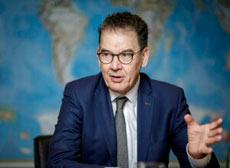 |
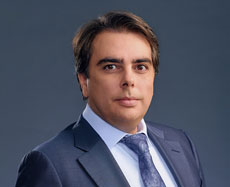 |
| Gerd Müller, Director General, United Nations Industrial Development Organization, Austria |
Asen Vasilev, Deputy Prime Minister and Minister of Finance, Bulgaria |
Indeed, these were some of the ideas expressed by Eve Bazaiba Masudi, Vice Prime Minister and Minister of Environment and sustainable Development, Democratic Republic of Congo who said across Africa there is generally a problem of financial accessibility that limits access by the population to the advanced technologies that exist. Gerd Müller, Director General, United Nations Industrial Development Organization, Austria reminded us that the negative consequences of climate change are being felt by the poorest among us. We must give them a priority through the SDGs to reach to a better life via a greater global solidarity and multi-national cooperation. Thomas Wu, Director International Affairs, Senate of Economy International, Germany agreed on these points stating the EU has to improve its operations even if potential African partners are skeptical of its aims.
Indonesia will hold the Presidency the G20 and of ASEAN this year and notes the shock effects of both the COVID pandemic (on tourism) and the Russian war on Ukraine increasing inflation through fuel and food shortages. Emil Elestianto Dardak, Vice Governor, East Java, Indonesia was very anxious about the wide-ranging economic impacts of the Russian invasion whose extent is presently unknown. And Sandiaga Salahuddin Uno, Minister of Tourism and Creative Economy, Indonesia was hoping that while global tourism is increasing, we must engage in diplomacy to support a tourism that educates, and which might better boost global growth.
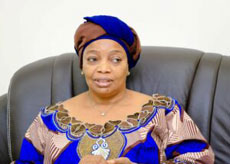 |
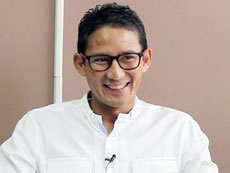 |
| Eve Bazaiba Masudi, Vice Prime Minister and Minister of Environment and sustainable Development, Democratic Republic of Congo |
Sandiaga Salahuddin Uno, Minister of Tourism and Creative Economy, Indonesia |
In conclusion, the delegates said we can envisage a world moving towards peace and sustainability, though in some lands it is difficult to see this on a daily basis. There is however an opening sense of global cooperation and the perception of green shoots showing.

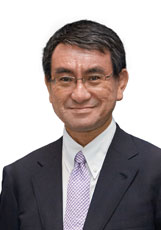
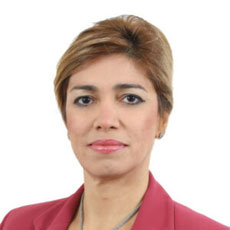
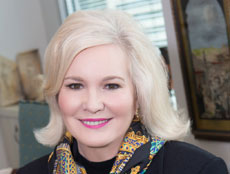
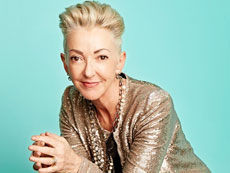




We can’t go back to the old-normal.
Miguel de Serpa Soares, Under-Secretary-General for Legal Affairs, United Nations
Managing COVID is emblematic of the present global management that must grasp the need to change.
Rania A. Al-Mashat, Minister of International Cooperation, Egypt
Climate change knows no borders.
Julia Klöckner, Minister of Food, Agriculture and Consumer Protection, Germany
New innovation is important to Romania as climate change responsibility needs water conservation and soil husbandry to grasp sustainably though it may be more costly.
Adrian Oros, Minister of Agriculture, Romania
There is a need for an open strategic autonomy across EU, plus a stronger role for global institutions.
Carmelo Abela, Minister within the Office of the Prime Minister, Malta
Angola and other nations must change the ways in which Africa does business.
Vera Esperança dos Santos Daves de Sousa, Minister of Finance, Angola
Rwanda has risen into the top 40 nations globally in the ease of doing business.
Béata Habyarimana, Minister for Trade and Industry, Rwanda
The SDGs are not known well enough. We must educate the people better to support adherence.
Nadja Swarovski, Chair, Swarovski Foundation, United Kingdom
Sadly, the ESGs and SDGs have become a label to adopt but have no accountability, especially if targeting 2050 when those adopting the measures today will be absent.
David de Rothschild, Founder, Voice for Nature, United Kingdom
Global recovery is uneven. And inflation is here to stay.
Barbara Ann Bernard, Chief Executive Officer, Wincrest Capital, Bahamas
The pandemic has created massive impacts on governments and especially the poor.
Lord Barker of Battle, Executive Chairman, En+ Group, United Kingdom